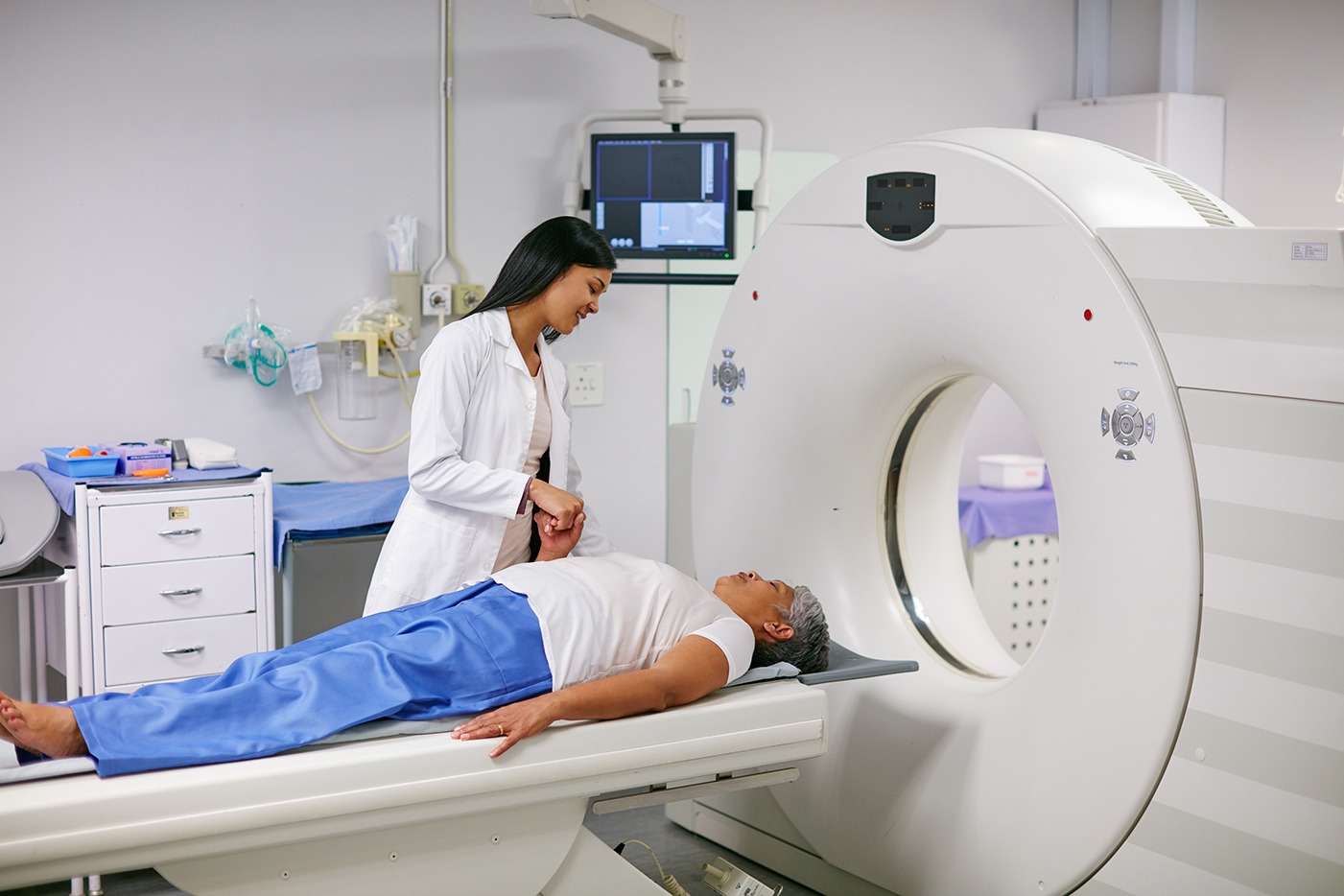Why is MRI Orbit Important?
An MRI orbit scan is vital for diagnosing and monitoring various ocular and orbital conditions. Unlike routine eye exams, which may only evaluate the external structure of the eye, MRI offers a more detailed view of the internal structures, including:
1] Optic Nerves: MRI scans provide high-resolution imaging of the optic nerves, which are essential for vision. Pathologies affecting these nerves, such as optic neuritis or optic neuropathy, can be easily detected with an MRI orbit.
2] Eye Muscles and Movement: The muscles that control eye movement are located in the orbit, and any abnormalities here can cause vision problems or eye movement disorders. MRI orbit scans help detect such issues, including muscle inflammation or tumors pressing on the muscles.
3] Orbital Tumors: Whether benign or malignant, tumors affecting the orbital cavity can impact vision and cause pain or discomfort. MRI is one of the most effective tools for detecting and locating these growths.
4] Inflammation and Infections: Inflammatory conditions, such as orbital cellulitis or thyroid eye disease (Graves' disease), often cause pain, swelling, and vision problems. MRI scans help assess the extent of inflammation and infection within the orbit.
5] Vascular Abnormalities: Vascular issues, such as arteriovenous malformations (AVMs) or aneurysms, can affect the blood supply to the eye and its surrounding tissues. MRI is useful in detecting such abnormalities before they cause irreversible damage.
MRI Orbit Cost Pune
The cost of an MRI Orbit in Pune is typically around Rs.2500. This scan is used to evaluate the eyes, optic nerves, and surrounding structures in the orbit, helping diagnose conditions such as tumors, infections, or inflammation. Prices may vary depending on the diagnostic center, the type of MRI equipment, and additional services provided. For precise pricing and availability, it's best to consult local MRI centers or hospitals in Pune.
When is an MRI Orbit Scan Needed?
An MRI orbit scan is typically recommended when a patient presents with symptoms or conditions affecting the eye or orbit. Some common reasons for an MRI orbit include:
1] Vision Changes: If you experience unexplained vision loss, double vision, or difficulty moving your eyes, an MRI orbit scan may be ordered to identify any underlying structural problems.
2] Pain or Swelling Around the Eyes: Persistent pain, swelling, or redness in the eye socket, particularly when accompanied by fever, may suggest an infection or inflammation. MRI can identify the cause, such as orbital cellulitis or abscesses.
3] Unexplained Headaches or Eye Discomfort: Severe headaches, especially those associated with eye pain or pressure, can sometimes be linked to orbital conditions like tumors or neurological disorders. MRI helps rule out these possibilities.
4] Trauma or Injury: A traumatic injury to the face or eye area can cause damage to the orbit, including fractures, bleeding, or internal damage to the eye. MRI is used to evaluate the extent of damage and guide treatment.
5] Thyroid Eye Disease (Graves’ Disease): Patients with thyroid disorders may develop eye-related symptoms, such as bulging eyes, pain, and dryness. MRI is used to assess the degree of eye muscle involvement in these conditions.
6] Suspected Tumors: If a tumor is suspected in the orbital region, MRI is the preferred imaging method. It provides detailed views of both benign and malignant tumors, aiding in surgical planning and treatment.









